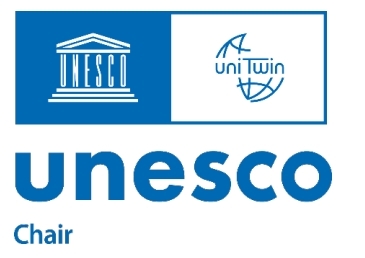UNESCO Chair
UNESCO Chair on Sustainable Tourism in UNESCO Designated Sites

What is a UNESCO Chair
A UNESCO Chair is established under the UNITWIN/UNESCO Chairs Programme, launched by UNESCO in 1992. It serves as a liaison office at higher education institutions worldwide, aligned with UNESCO’s key priority areas in education, natural and social sciences, culture, and communication.
The primary mission of the UNESCO Chairs Programme is to foster academic exchange and collaboration among universities globally, working collectively toward the United Nations’ 2030 Agenda for Sustainable Development.
As UNESCO’s most significant intersectoral initiative in higher education, the programme encompasses activities in training, research, and information dissemination. Its participants primarily include universities, non-governmental organizations (NGOs) in higher education, foundations, and enterprises.
To qualify for establishing a UNESCO Chair, an institution must demonstrate notable academic achievements or training activities in a specific field that are shareable and scalable. The process typically involves an application by the prospective host institution, endorsement by the National Commission for UNESCO of the host country, and a rigorous evaluation. Upon approval, UNESCO signs a formal agreement with the host university or research institution and appoints a designated academic leader as the Chair Holder, who oversees the implementation of the Chair’s activities.
The UNITWIN programme encourages UNESCO Chairs to form partnerships—either among themselves or with other relevant academic institutions—as “sister institutions,” building collaborative networks to conduct joint training, research, and scholar exchanges. This provides a platform for sharing knowledge and best practices across UNESCO’s thematic areas.
As of 2021, the UNITWIN/UNESCO Chairs Programme includes 830 Chairs across 110 member states.
UNESCO Chair on Sustainable Tourism in UNESCO Designated Sites
Establishment Date:
- Officially authorized by UNESCO on May 27, 2020
- UNESCO formally notified the commencement of its second cycle on December 14, 2023
Specification name:
- Chinese: 联合国教科文组织名录遗产地可持续旅游教席
- English: UNESCO Chair on Sustainable Tourism in UNESCO Designated Sites
Chair Holder:
Professor Zhaozhi Zhang (Department of Tourism, Fudan University)
Co-Chair Holder:
Associate Professor Jun Gao (School of Tourism Management, Sun Yat-sen University)
Duration of Each Cycle:
- Four years per cycle
First cycle: 2020–2023
Second cycle: 2024–2027 (currently active) - Overall Objectives:
- To establish an integrated system for research, training, information services, and documentation on sustainable tourism
- To promote high-level international collaboration among renowned scholars and faculty from China, Asia-Pacific, Europe, and other regions
- Key Tasks and Goals:
- Enhancing Heritage Site Management Capacity:
- Joint graduate education programmes in heritage and tourism
- Short-term training for domestic and international managers, government officials, and young professionals
- Development and delivery of heritage management training programmes
- Advancing Research and Dissemination on Sustainable Tourism at Heritage Sites:
- Establishing partnerships with heritage sites to design and implement research projects
- Actively disseminating research findings to practitioners through publications, academic conferences, and other channels
- Creating a publicly accessible database for monitoring sustainable tourism at heritage sites
- Building an Academic Network on Heritage and Tourism:
- Fostering dynamic institutional and individual collaborations in sustainable tourism at heritage sites
- Facilitating knowledge exchange and dissemination of best practices
- Promoting student and faculty exchanges through workshops and academic conferences hosted by the Chair
- Raising Public Awareness of Sustainable Tourism at Heritage Sites:
- Organizing student competitions, forums, and events focused on UNESCO heritage conservation and sustainable tourism to enhance public engagement and awareness
- Enhancing Heritage Site Management Capacity:


